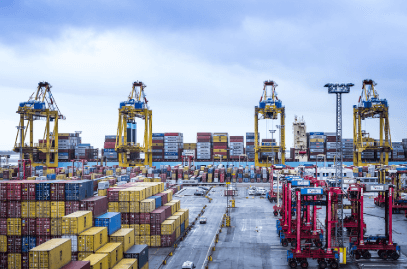In the realm of global trade, the logistics of transporting heavy and bulk cargo present unique challenges and opportunities that demand specialized freight services. With options like Full Truckload (FTL) and rail freight, businesses must navigate a complex landscape of transportation methods and technologies to ensure efficiency and compliance. As the industry grapples with rising fuel costs and regulatory requirements, understanding the best practices in cargo handling and the latest innovations becomes essential. What strategies are emerging to optimize these operations and mitigate risks?
Types of Freight Services
When considering the transportation of heavy cargo, understanding the various types of freight services available is essential for optimizing logistics and ensuring that goods are delivered efficiently and safely.
LTL shipping offers cost-effective solutions for smaller loads, while freight brokerage facilitates access to a network of carriers, enhancing flexibility and service options.
Each service type plays a critical role in effective cargo transport strategy.
Transportation Methods
Freight transportation methods are frequently categorized based on the specific requirements of heavy cargo, encompassing a range of modalities such as road, rail, air, and maritime transport.
Effective logistics strategies often involve intermodal solutions, combining road transport and rail freight to optimize efficiency.
Maritime shipping remains essential for bulk cargo, while air cargo provides expedited options for time-sensitive deliveries, enhancing operational flexibility.
See also: Environmental Consulting Services for Sustainable Business Practices
Technologies in Cargo Handling
Advancements in technologies for cargo handling have significantly enhanced the efficiency and safety of transporting heavy cargo across various modalities.
Automated systems streamline operations, reducing human error and increasing throughput.
Furthermore, innovative cargo tracking solutions provide real-time visibility, empowering stakeholders to make informed decisions.
Together, these technologies not only optimize logistics but also foster a culture of accountability and responsiveness within the freight industry.
Best Practices for Shipping
Effective shipping practices are critical for ensuring the timely and safe delivery of heavy cargo.
Adhering to shipping regulations and maintaining accurate cargo documentation fosters compliance and minimizes risks.
Strategically planning routes, selecting appropriate carriers, and conducting thorough inspections further enhance operational efficiency.
Conclusion
In the intricate machinery of global trade, freight services for heavy and bulk cargo function as the vital gears that facilitate seamless movement of goods. The integration of various transportation methods, advanced technologies, and adherence to best practices ensures the optimization of shipping operations. As the demands of commerce evolve, these services must adapt, ensuring that the cogs of logistics operate efficiently, ultimately driving economic growth and enhancing supply chain resilience in an increasingly interconnected world.

